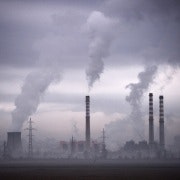Why low cost power still eludes consumers
One of my mentors had a favorite saying: 'We are where we are'. He used it to cut off discussions at our company about how much better things would be 'if only'.
“We're here”, he'd snap. “Where do we want to be and how do we get there?”
This could be applied to the present debate about national energy policy, not least about the east coast electricity scene.
If there is one thing upon which almost all stakeholders agree, where we are is not a happy place. While we shouldn't forget how we came to be here, the real issue is where we want to be.
The Business Council of Australia deserves credit for wasting little time in its new energy statement on the sins of the recent past and most effort on its view of how to make things better -- less bad than it could become -- without some stringent remedial action.
The BCA's core assertion in the 70-page paper is that Australia has settled for second-best energy and climate change policy, and is enmeshed in a confused debate about what to do next.
Most of the BCA's focus is on end-user costs and the fact over 10 years, policy and regulation have succeeded in doubling residential and small business bills and increasing them by 88 per cent for large businesses.
Improving the situation must involve “balance and trade-off”, the council avers. And we must not continue to allow policymaking to be derailed by short-sighted slogans that do not allow for a middle ground, chief executive Jennifer Westacott says.
A lot of the BCA's statement is focused on the domestic gas imbroglio. It includes a rejection of the reservation policy so strongly pushed by some major manufacturers, a demand for the pursuit of much greater supply and an elbow in the ribs for politicians who can't get their act together to achieve this.
On electricity, the council argues there are five key steps needed to improve the situation.
Mass market consumers needn't hold their breath. None of what is proposed offers a quick fix. In fact, the statement reinforces the message that no such fix is possible.
The BCA wants independent analysis of the sustainability of the power market; adoption of economically efficient reliability and planning standards and for these to be a condition of sale for electricity networks still owned by governments; privatisation of all power assets around the country still in government hands; time-of-use tariffs to address peak demand hassles; network tariffs that reflect the cost of electricity delivery; and most controversially, a bipartisan agreement to reduce the renewable energy target to a “true 20 per cent”.
The council wants the Abbott government to address all this and much more (relating to gas, transport fuels and so forth) in the energy white paper (which the Department of Industry website still says will be delivered before the end of the year but is expected by the energy industry to be published towards next autumn).
The extent to which the federal government (and state governments) might find much of the BCA's wishlist too hard is one of the biggest energy questions of our time, especially because these steps will only really work with agreement across major party lines.
Politicians hearing the BCA's message (which closely resembles what the supply sector is saying) might be attracted to a piece of verse from Rudyard Kipling: “The toad beneath the harrow knows/exactly where each toothpoint goes/The butterfly upon the road/ preaches contentment to that toad.”
Members of the mass power market, including eight million residential account-holders, are unlikely to read the BCA's 70-page statement. (How many of Australia's 860 MPs will, I wonder?) As such, they will struggle to understand how what is translated for them by the media will lead to the politically-promised land of cheaper energy.
The tough communications task remains: how to tell these consumers that (a) they can only cut their costs by shopping around and by being more efficient; (b) more than a few of them will face higher bills when the tariff changes the BCA, the federal government and suppliers seek are imposed; and (c) the true name of the game being played is suppressing future price spikes rather than returning to the good old days.
We are where we are.
The onus is on politicians, regulators and suppliers (and business lobbyists) to explain to mass market consumers why a rescue effort to deliver 'low cost power' (or gas) is not what is actually under way.
Keith Orchison, director of consultancy Coolibah Pty Ltd, publisher of the This is Power blog and editor of OnPower newsletter, was chief executive of two national energy associations from 1980 to 2003. He was made a member of the Order of Australia in 2004 for services to the energy industry.
















